Learning review of language inclusion in the Rohingya response
When the Rohingya refugee response began in 2017, many agencies identified the language dynamics as a significant challenge. Translators without Borders’ (TWB) first review […]
Hospital cleaner as interpreter: language and cultural awareness in Rohingya access to health care
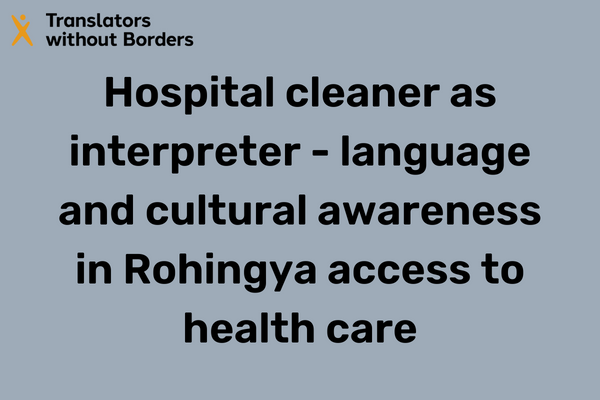
View our Hospital cleaner as interpreter – language and cultural awareness in Rohingya access to health care report in a new tab here.
Talking effectively and respectfully about gender-based violence in Rohingya communities
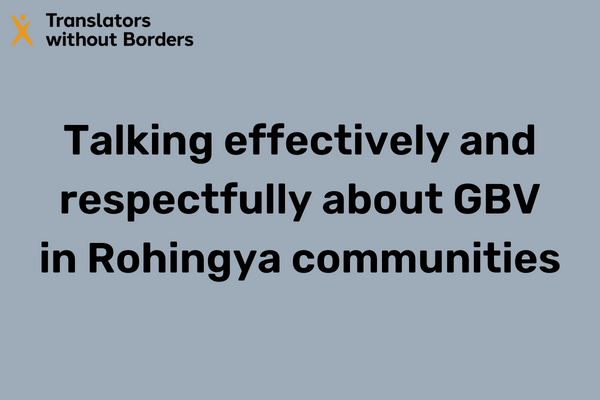
View our Talking effectively and respectfully about gender-based violence in Rohingya communities report in a new tab here.
Bridging community and humanitarian approaches to sexual and reproductive health in Rohingya communities
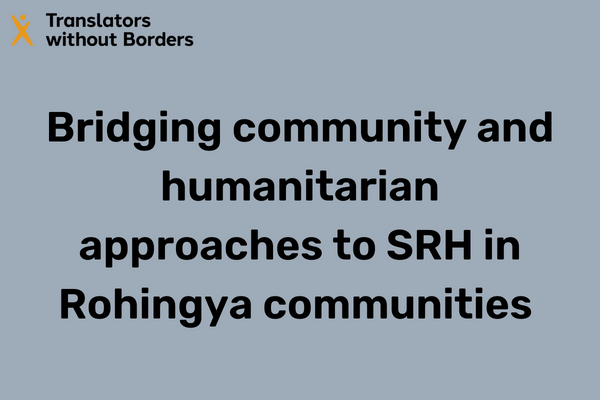
View our Bridging community and humanitarian approaches to sexual and reproductive health in Rohingya communities report in a new tab here.
Fat and healthy – Rohingya parents’ knowledge of child nutrition
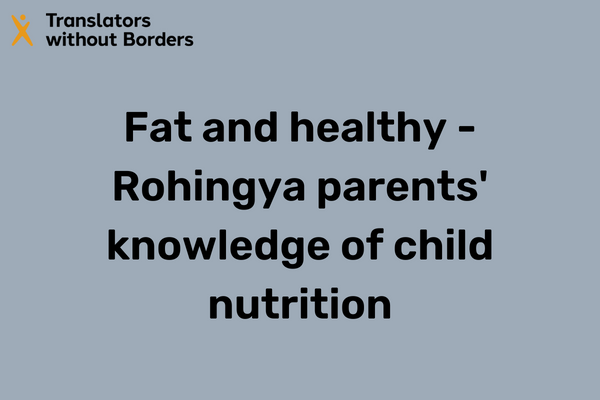
View our Fat and healthy – Rohingya parents’ knowledge of child nutrition report in a new tab here.
Majhis’ role in sharing information in the camps
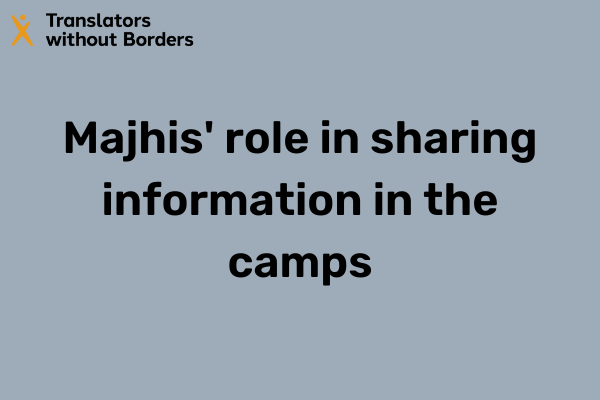
View our Majhis’ role in sharing information in the camps research report in a new tab here.
Imams’ role as sharers of information in the camps
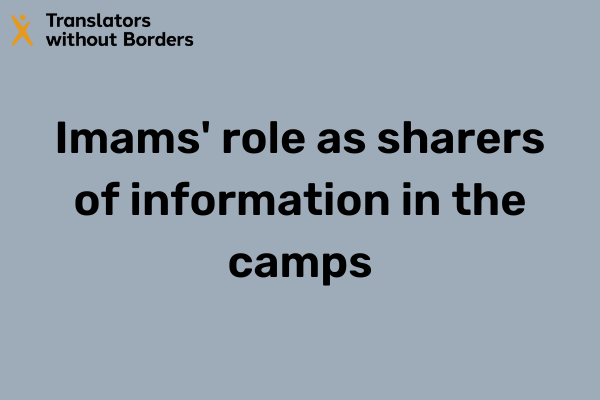
View our Imams’ role as sharers of information in the camps research report in a new tab here.
Complaint and feedback mechanisms are missing the voices of women and people with restricted mobility
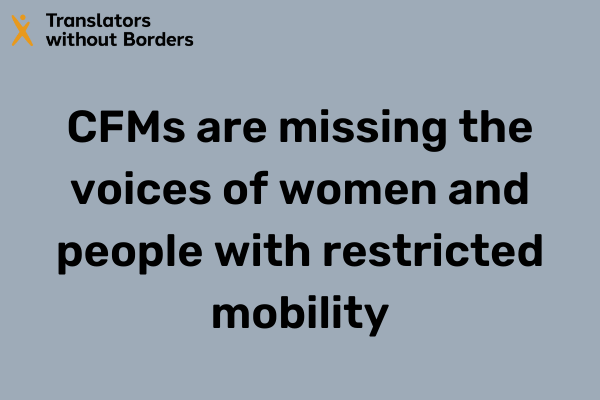
View our Complaint and feedback mechanisms are missing the voices of women and people with restricted mobility research report in a new tab here.
How Rohingya people think and talk about mental health
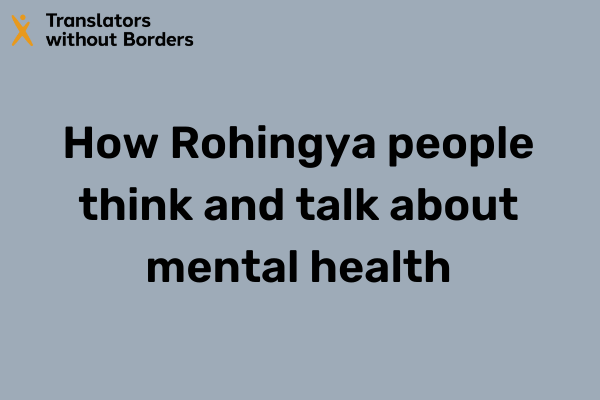
. View our How Rohingya people think and talk about mental health research report in a new tab here.
Rohingya information preferences and perspectives
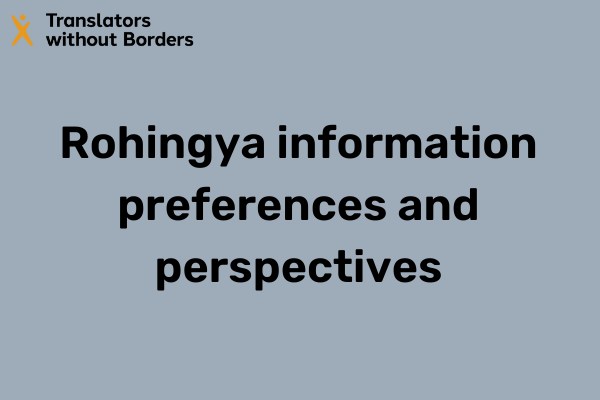
View the Rohingya information preferences and perspectives research report in a new tab here.